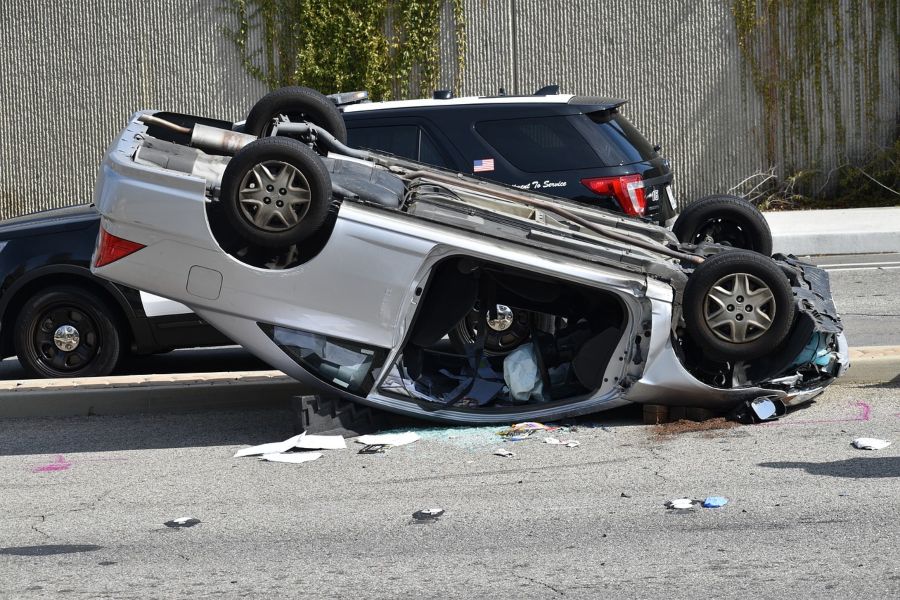One thing about car accidents is that they can happen suddenly and unexpectedly, leaving you feeling uncertain about what to do next. Because of their unexpected nature, it’s important to know how to respond can help protect your health, secure your legal rights, and strengthen any future claims. This article will guide you through managing the aftermath of a car accident, from immediate actions to securing compensation.
Immediate Steps After an Accident
First things first, check yourself and others for injuries. You might think there’s nothing wrong with you but most of the time adrenaline masks the physical pain. Call for emergency services right away. Other than your health, medical attention is essential for establishing any injuries for future claims.
If you can, drive the vehicles to the side of the road. Turn on your hazard lights so that other drivers are alert and the scene is kept safe. Then, call the police. Having an officer at the scene will provide you with an official report that is often essential for insurance claims and any legal matters that may follow. Inform the officers about the accident without admitting fault. Responsibility statements can complicate liability later on.
It’s important to document the accident scene. Take videos and photos that show vehicle damage, injuries, the road, weather conditions, and anything else that might help in reconstructing what happened. Also, try to collect witness information, if anyone else was around – their perspective can support your account of events.
Handling Insurance After an Accident
Once you’re safe and the immediate needs are addressed, reach out to your insurance company as soon as possible. Inform them about the accident and provide a straightforward description of what happened. Just like with the police, don’t make statements about fault, as these can be misinterpreted and complicate your claim.
Keep in mind the basics of your insurance coverage. Liability insurance covers damages if you’re responsible for the accident, while collision insurance covers your vehicle’s damage regardless of fault.
Insurance adjusters generally aim to reduce payout amounts, so you should stay informed and prepared to work with an insurance adjuster, who will assess the damages and determine compensation.
Managing Medical Care and Injury Claims
You might think that minor accidents cannot cause serious injuries, but it’s not true. See a doctor as soon as possible. Injuries like whiplash or concussions may not show symptoms right away, and a medical evaluation provides a record linking any injuries directly to the accident. These documents will have a crucial role in receiving fair compensation for medical expenses.
Keep all medical records, including medical bills, diagnosis, and treatment details. In case of emotional distress other than physical pain, or a loss of quality of life, you might also be eligible for non-economic damages which are calculated with either a “multiplier method” (a factor that increases economic damages) or a “per diem method” (a daily rate for pain endured until recovery).
Filing for Compensation
Document accident-related expenses: medical bills, repair costs, rental car expenses, and any lost income due to missed work. These all contribute to your claim.
Typically, an adjuster will assess the damage and determine a compensation offer after you file your claim. If the offer doesn’t cover your losses fully, consider negotiating. To strengthen your negotiating position, you will need to maintain a well-organized record of expenses and losses.
A car accident lawyer in New York can provide guidance through legal complexities, advocate on your behalf, and handle communication with the insurance company.
Common Mistakes to Avoid
A common mistake people make after an accident is not seeking medical attention. This can not only cause health issues but may also make your injury claim weaker. Holding off on seeking medical help will make it harder for you to prove that your injuries are related to the accident.
A common error is to admit fault on the scene. Saying “I’m sorry” or “I didn’t see you” can be interpreted as an admission of responsibility and may affect your claim. Let the police and insurer determine responsibility.
In addition, many people rush to settle with their insurance company, but quick settlements often do not cover all injuries or damages, especially if symptoms develop over time. Before settling, understand your medical condition and the financial impact of the accident in depth.
Final Words
Experiencing a car accident can be overwhelming, but knowing how to respond can make a real difference. Aside from seeking immediate medical attention and documenting the scene, you can protect yourself financially and legally by understanding insurance coverage and potential compensation. If complications arise, being informed about your rights, knowing common mistakes, and considering professional legal assistance can provide you with peace of mind and help you recover. Regularly reviewing your insurance policy also helps ensure you’re prepared if the unexpected occurs.
FAQ’s
What does “when the unexpected happens” usually refer to?
It refers to unforeseen life events such as accidents, natural disasters, sudden illness, property damage, or emergencies that disrupt normal life and require quick action or support.
How can I prepare for unexpected emergencies?
You can stay prepared by having an emergency plan, maintaining insurance coverage, keeping important documents accessible, and building an emergency fund to manage urgent expenses.
Who should I contact first during an unexpected crisis?
If safety is at risk, call local emergency services immediately. For non-emergency situations, contact your insurance provider, employer, legal advisor, or relevant support services depending on the scenario.
What financial protections help during unexpected events?
Health insurance, property insurance, life insurance, and emergency savings are key protections that help reduce financial stress and support recovery after unforeseen incidents.
How important is documentation when something unexpected happens?
Documentation is crucial. Photos, videos, medical records, and receipts help provide evidence for insurance claims, legal action, or financial assistance.


